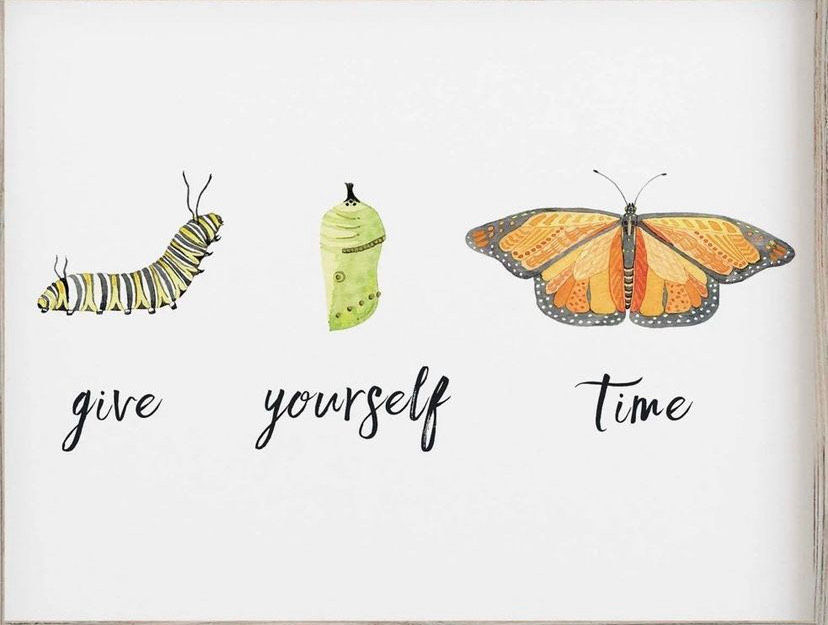Your Mental Health improvement won't come overnight!
- JOVITA CERNIAUSKAITE
- Oct 7, 2022
- 3 min read

The term "mental illness" is used to describe a variety of mental health issues or disorders, such as emotional problems, general mental illnesses including depression and anxiety, major mental psychotic disorders, drug addiction disorders, and unusual personality features. In developing nations, mental illness is a significant, though manageable, concern. It influences our thoughts, emotions, and behaviours as we go through life. Additionally, it influences how we respond to stress, interact with each other, and make decisions. Every phase of life, from early childhood to adulthood and ageing, places importance on mental health.
Positive aspects of mental health
It goes beyond simply being free of mental health issues to have strong mental health. Being free of sadness, anxiety, or other psychological disorders is only one aspect of having a healthy mind or heart. Mental health instead of being free from mental illness refers to the presence of good traits.
Healthy mental functioning includes:
Adjustments can be made by someone who has a healthy mental state.
A mentally healthy individual has a sense of value and feels valuable and worthwhile.
A mentally healthy individual makes his own decisions and solves most of the difficulties on his own.
He exhibits comprehension of the issues and motivations of others, and he feels confident in himself and in a group.
A responsible attitude is a sign of mental wellness.
He is able to love and be loved.
Have a positive outlook on life, as well as the capacity for amusement.
The capacity to handle stress and recover from hardship.
A sense of direction and significance in their interactions and activities.
The capacity to pick up new abilities and adjust to change.

Ways to boost your mental health
Focus on framing these adjustments as acts of self-kindness rather than self-punishment as you experiment with new behaviours and integrate those into your daily life. Judgment and unpleasant self-talk can do much less to enhance your mental health and perspective than preserving a kind, loving attitude towards yourself.
Even if your well-being may suffer when the world is chaotic, having a solid foundation will assist you to get through this with fewer negative consequences, less dramatic declines, and a quicker return to stability.
There are some aspects of your life that you might not be able to manage that could harm your mental health. Consider losing a family member or experiencing stress at work. However, there seem to be steps you could do to increase your resilience so that you can recover from negative events:
1. Get Enough Sleep Each Night, at Least 7 Hours
Reduced sleep might seem like a wise choice if your life is busy. But good sleep is a requirement, not a privilege, for your mental health. Your mood, vitality, mental clarity, and capacity for stress can all suffer from even just a few hours here and there of sleep deprivation. Chronic sleep deprivation can also negatively impact your health and perspective over time.
2. Staying active
There is an innate connection between the mind and the body. Your psychological and emotional health will inevitably improve as your physical wellness does as well. Regular physical activity can significantly improve mental and emotional health, reduce stress, and enhance memory.
It might be simpler than you imagine to incorporate enjoyable exercise into your daily routine if you are not a big fan of workouts. Check the website below for some tips.
3. Keep a notebook to record your accomplishments and feelings of appreciation
Enter a maximum of five things for which you are grateful and five accomplishments for that day in your list. Doing this activity in your mind is not enough; that’s why you must keep a physical record. Positive emotions and the ability to recall memories are two key advantages. Daily journaling encourages you to reflect on the positive events of the day, which keeps you upbeat.
4. New skill or hobby
It's never too late to learn a new skill and becoming involved in things you enjoy might help you feel better mentally. Playing video games, trying a new computer programme, or picking up a new hobby can all exercise your brain's nerve cells and keep them active, keeping your mind sharp.
5. Pet Therapy
According to a study, spending time with pets lowers the state of anxiety more than other leisure activities. Additionally, pets offer a non-judgmental type of interaction that can inspire and uplift people, particularly kids. If you don't have a pet it’s not a problem as you can spend time with a friend who does or consider helping out at a shelter.

There are various ways to improve your mental health and these five that we spoke about it is just the beginning. Mental health improvement takes time but it will bring so many positive things to your life. Check the websites below:
So what have you done today to improve your mental health? :)

Comments